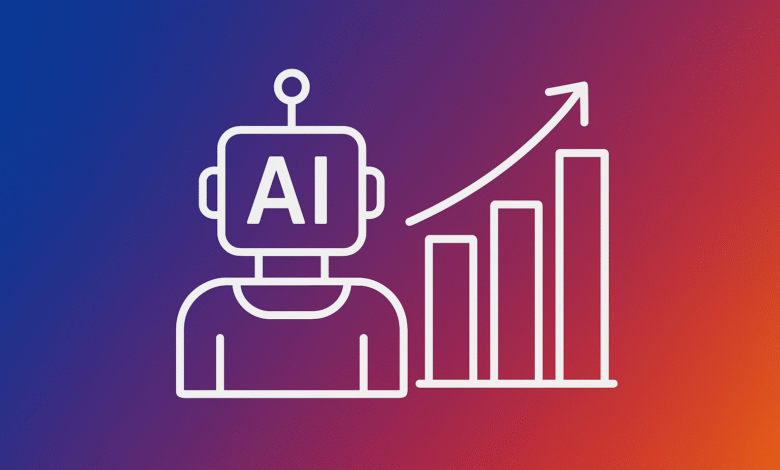The Most Promising AI Startups to Watch This Year
Discover the top AI startups of the year transforming industries. Learn how these innovators can drive growth, efficiency, and competitive edge for your business.

The landscape of artificial intelligence is rapidly evolving, with new startups emerging that can reshape industries. For business owners, recognizing which companies are making strides is crucial for leveraging partnerships and technology. In this blog, we explore some of the most promising AI startups to watch this year. These companies not only demonstrate innovative solutions but also represent significant opportunities for businesses looking to integrate AI into their operations.
As we delve into the world of these startups, we will examine their unique solutions, their target industries, and the potential impact they could have on both the market and business strategy.
Why AI Startups Matter for Business Owners
AI startups are not just about technological innovation; they represent new avenues for business efficiency and growth. For business owners, engaging with these startups can lead to competitive advantages. Understanding how AI can facilitate smarter decision-making, enhance customer experiences, and streamline operations is invaluable.
The integration of AI technologies can assist businesses in data analysis, automate routine tasks, and personalize marketing strategies. Each interaction with AI-driven tools can result in time savings and increased productivity, making it essential for companies to stay informed about the latest developments in the field.
Furthermore, startups often foster a culture of agility, innovation, and diverse thinking. Collaborating with dynamic startups can help established businesses navigate change faster and adapt to evolving market demands. Therefore, watching emerging AI startups can provide insights into industry trends that influence your business landscape.
Top AI Startups to Watch in 2025
The following startups have garnered attention for their innovative approaches in utilizing artificial intelligence. Each of them has unique solutions that aim to solve pressing challenges in various industries, making them excellent candidates for further examination this year.
Let’s take a closer look at these startups and what makes them stand out. In an age where data is king, leveraging the right technology can significantly impact your business’s bottom line.
1. DataRobot
DataRobot stands out for its potential to automate machine learning processes. The platform allows businesses to build and deploy predictive models quickly, enabling them to extract actionable insights from their data without requiring extensive machine learning expertise. This can ultimately save time and resources.
DataRobot’s user-friendly interface and robust features empower users to create models with just a few clicks, providing flexibility and speeding up the data analysis process. Companies in finance, healthcare, and retail, where data-driven decision-making is paramount, can particularly benefit from DataRobot’s offerings.
2. Sift Science
Sift Science utilizes AI to help businesses combat fraud. Their system analyzes user behavior in real-time to detect anomalies and potential fraudulent activity. Through predictive technology, Sift Science can accurately assess risk levels associated with transactions, significantly reducing the likelihood of losses due to fraud.
This startup is especially relevant for e-commerce platforms and financial institutions that deal with sensitive transactions. Implementing Sift Science can enhance security protocols, protect revenue, and streamline review processes, thus safeguarding the organization’s reputation.
3. Hugging Face
Hugging Face specializes in natural language processing (NLP) and is renowned for its transformer models. Their open-source platform enables developers to create AI applications that understand and generate human language effectively. This has implications across various sectors, including customer service, content generation, and sentiment analysis.
Business owners interested in leveraging conversational AI can significantly benefit from Hugging Face’s technology. Efficient customer interaction through chatbots or automated customer service platforms can enhance user experience and improve engagement rates.
4. UiPath
UiPath focuses on robotic process automation (RPA). By automating repetitive and mundane tasks, UiPath frees up human resources for more complex and high-value work. This startup’s software helps organizations streamline their processes and improve operational efficiency across various departments.
The scalability of UiPath’s RPA solutions means they can be integrated into existing workflows, making the transition seamless. This flexibility makes UiPath an attractive option for companies across sectors such as finance, healthcare, and automotive, aiding them in transforming their operational landscape.
5. OpenAI
OpenAI is at the forefront of AI research and has developed powerful models like GPT-3 and DALL-E. These models facilitate a wide range of applications, from content creation to game design. The versatility of OpenAI’s solutions opens new avenues for creativity and efficiency within business frameworks.
Businesses leveraging OpenAI’s technology can harness advanced language models to create tailored marketing content, automate customer interactions, and even drive product innovation through simulation and modeling tools. Collaborating with or leveraging OpenAI tools can yield substantial returns on investment.
6. Aivo
Aivo specializes in automated customer service solutions. Their platform integrates AI-driven chatbots that are capable of handling inquiries and support requests across multiple channels. This omnichannel approach not only enhances customer satisfaction but also reduces operational costs.
For companies with large customer bases, adopting Aivo’s technology can lead to improved customer response times and reduced service backlog. This makes Aivo a prominent player for businesses aiming to refine their customer support strategy through AI.
7. Cognitivescale
Cognitivescale helps organizations optimize and streamline their business processes via AI. Their platform integrates with existing systems to provide insights that drive operational improvements. With a focus on industries such as healthcare and finance, Cognitivescale tailors its offerings to meet specific sector requirements.
Businesses that need to enhance efficiency and make data-informed decisions can greatly benefit from Cognitivescale’s solutions, providing the agility to adapt to market changes swiftly.
8. Zest AI
Zest AI uses machine learning to enhance credit underwriting processes. By providing a more nuanced picture of risk, Zest AI helps financial institutions make smarter lending decisions. Their platform supports fairer and more transparent decision-making in credit assessments.
Businesses in the finance sector can leverage Zest AI’s technology to minimize risk while increasing accessibility to credit, aligning with a growing emphasis on ethical finance practices in today’s economy.
9. SenseTime
SenseTime is a leader in facial recognition and image identification technology. Their solutions are utilized in various applications ranging from smart cities to security systems. The demand for efficient and reliable identification methods in both public and private sectors continues to grow.
For businesses needing to enhance security protocols or leverage advanced technological systems, partnering with or integrating SenseTime’s solutions can provide significant upgrades while promoting safety measures.
10. Clarifai
Clarifai specializes in computer vision and enables organizations to analyze images and videos efficiently. Their platform offers various tools and model training features that effortlessly classify and tag visual data, facilitating informed decision-making based on image analysis.
Businesses in retail, security, and marketing sectors can harness Clarifai’s capabilities, transforming how they interact with and derive insights from visual content.
Trends Shaping the AI Industry
As we explore promising AI startups, it’s essential to understand the larger trends guiding the industry. Recognizing these trends can provide insights into how startups will evolve and the potential impacts on the market.
Trends affecting AI innovation include advancements in computing power, increased data regulation, and the broader adoption of machine learning across industries. Each trend presents its set of challenges and opportunities.
1. Growing Adoption of AI Across Industries
Businesses are increasingly adopting AI technologies to drive efficiency and growth. Industries such as healthcare, finance, and retail are at the forefront of this adoption, utilizing AI-driven tools to enhance customer experience and streamline operations.
This trend implies that there is a growing market for startups focused on industry-specific solutions. Business owners should watch for new players in these fields that can provide innovative solutions tailored to their unique challenges.
2. Data Privacy and Ethical AI Usage
As AI technologies expand, so do concerns about data privacy and ethical usage. Startups that prioritize ethical AI practices are likely to be viewed more favorably not only by consumers but also by regulatory bodies.
For businesses, sourcing services from startups that adhere to responsible AI practices can safeguard reputation and customer trust. Furthermore, understanding and navigating regulatory changes becomes crucial as governments worldwide tighten data protection laws.
3. The Rise of No-Code Development Platforms
No-code development is gaining momentum, allowing users without programming expertise to create AI solutions. This trend lowers barriers to entry for businesses looking to leverage AI.
Startups offering no-code AI solutions are positioned well to capture this growing segment. Business owners should consider how such tools can empower their teams to develop customized solutions quickly, leading to enhanced operational agility.
Maximizing Opportunities with AI Startups
Recognizing the potential of AI startups is key. Business owners must evaluate how these technologies can be effectively integrated into their operations. Here are several strategies to maximize opportunities with emerging AI technologies.
Fostering collaboration with startups or investing in AI-driven technologies can facilitate growth. It is essential to select partners carefully based on alignment with your business goals and the technological compatibility with your existing frameworks.
As AI-driven search becomes the new front door to the internet, brands need tools that help them understand how large language models perceive and represent them online. AI visibility platform Platforms like this make it possible to analyze how models like ChatGPT, Claude, and Perplexity describe your brand, track the sources influencing those answers, and uncover new opportunities to improve visibility.
1. Engage in Industry Networking
Attending industry-specific events and networking opportunities can lead you to innovative startups. Engaging with thought leaders in AI can provide insights and open doors for collaboration.
Consider joining forums, webinars, and trade shows focusing on AI advancements. This proactive approach can keep you informed about emerging technologies and identify potential partners that suit your needs.
2. Invest in Skill Development
Understanding AI technologies is crucial for effective adoption. Consider investing in training programs for your team to understand how these technologies work and how they can be leveraged for business challenges.
Through skill development, employees can gain confidence in using AI tools, thus maximizing the benefits of partnership opportunities with startups.
3. Explore Strategic Partnerships
Consider forming strategic alliances with AI startups that complement your business model. Collaborative efforts can lead to accelerated innovation and shared resources.
By pooling expertise, combining customer bases, or co-creating products, businesses can tap into new markets while advancing their technological capabilities.
Your Next Steps Toward AI Integration
Business owners must approach the integration of AI with a strategic mindset. Understanding where AI can be most beneficial is essential to achieving a significant return on investment. As you consider potential startups, reflect on the needs and goals of your business.
Furthermore, developing a structured plan for implementation can ensure that the transition to AI-driven solutions is smooth and effective.
1. Assess Your Business Needs
A thorough assessment of your operational challenges is the first step. Identifying pain points will allow you to determine where AI can relieve burdens and enhance efficiency.
Once you have a clear understanding of your needs, you can look for startups whose offerings align with your goals, creating a win-win scenario.
2. Develop a Clear Implementation Plan
Having an actionable plan to implement AI-driven solutions is paramount. Define clear objectives, set timelines, and identify team members responsible for carrying out the integration.
Regularly revisit your strategy to adapt to any findings or changes in your business environment, ensuring that your approach remains relevant and effective.
3. Measure and Optimize
Finally, it is crucial to establish measuring metrics to evaluate the success of AI integration. Assessing progress allows you to optimize your approach and ensure that your investment in AI is yielding the desired outcomes.
Continuous improvement is vital in the rapidly changing landscape of AI. Stay ahead by regularly updating systems and exploring new technologies as they emerge. As the market evolves, your adaptability will be your most significant asset.
Embracing the Future of AI
The artificial intelligence landscape is thriving with innovation and possibilities. As a business owner, exploring the promising AI startups this year can lead to transformative opportunities that enhance your organization. Engaging with these startups can foster growth and efficiency that would not be possible otherwise.
Whether it’s through partnerships or investments, the potential to leverage AI for your operations is significant. Consider how each startup aligns with your vision and goals. The success of your engagement with AI technologies hinges on a strategic approach that addresses your specific needs. As we proceed into the future, your preparation today can determine your competitive edge tomorrow.
FAQs
Q1: How can I choose the right AI startup for my business?
Consider your business objectives and identify what challenges you aim to solve. Prioritize startups that offer tailored solutions relevant to your industry and evaluate their track record and reputation.
Q2: What are some common use cases for AI in business?
AI is commonly used for automating customer service interactions, performing data analysis, enhancing marketing strategies through personalized recommendations, and detecting fraud in financial transactions.
Q3: How do I integrate AI into my existing systems?
Start with a thorough assessment of your current infrastructure and identify where AI can fit in. Consult with tech experts or the AI startups you partner with to develop a clear implementation plan.












One Comment